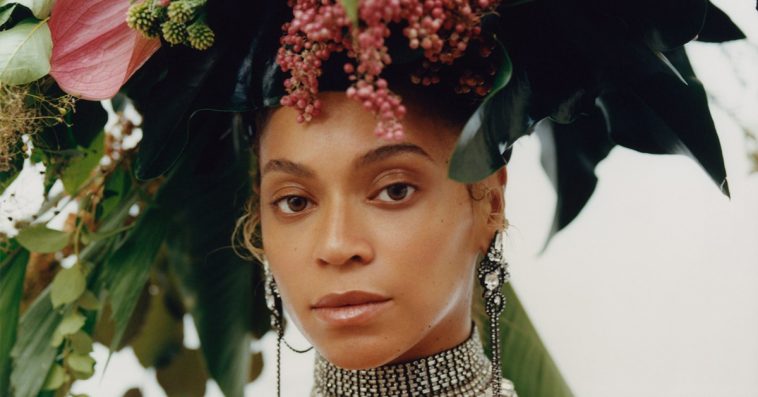Beyoncé landing the cover of Vogue‘s September issue, having almost complete control of every aspect of the shoot, and hiring the first black photographer in the magazine's history was a really big deal.

Perhaps an even bigger deal was the candid, intimate essay the superstar penned titled “Beyoncé in Her Own Words: Her Life, Her Body, Her Heritage.”
In it, the 36-year-old reveals that she almost died during the birth of her twins last year. She discusses losing baby weight, radical self-love, how her ancestry impacts her relationships, why she hired Tyler Mitchell for the shoot, and how she plans on raising her children, among many other things. Here are some of he most intimate revelations from this iconic issue of Vogue.
Beyoncé regrets the pressure she put on herself to lose the baby weight after the birth of Blue Ivy in January 2012.
“After the birth of my first child, I believed in the things society said about how my body should look. I put pressure on myself to lose all the baby weight in three months and scheduled a small tour to assure I would do it. Looking back, that was crazy.”
After the emergency C-section of twins Rumi Carter and Sir Carter last year, Beyoncé “approached things very differently.”
“I was 218 pounds the day I gave birth to Rumi and Sir. I was swollen from toxemia and had been on bed rest for over a month. My health and my babies' health were in danger, so I had an emergency C-section. We spent many weeks in the NICU.”
Bey heavily leaned on husband Jay-Z in the weeks following the birth of the twins.
“My husband was a soldier and such a strong support system for me. I am proud to have been a witness to his strength and evolution as a man, a best friend and a father. I was in survival mode and did not grasp it all until months later. Today I have a connection to any parent who has been through such an experience.”

The twins' challenging delivery didn't just change Beyoncé emotionally—it changed her physically. She recalls how differently her body felt after her emergency C-section.
“It had been major surgery. Some of your organs are shifted temporarily, and in rare cases, removed temporarily during delivery. I am not sure everyone understands that. I needed time to heal, to recover.”
This time around, she gave herself time and permission to recover in a healthy way.
“During my recovery, I gave myself self-love and self-care, and I embraced being curvier. I accepted what my body wanted to be. After six months, I started preparing for Coachella. I became vegan temporarily, gave up coffee, alcohol and all fruit drinks.”

She understood that having her kids see her fuller body could only have a positive impact.
“But I was patient with myself and enjoyed my fuller curves. My kids and husband did, too. I think it's important for women and men to see and appreciate the beauty in their natural bodies…That's why I stripped away the wigs and hair extensions and used little makeup for this shoot.”
She'll get her six-pack back…but not until she fully enjoys her time with her “little FUPA.”
…To this day my arms, shoulders, breasts and thighs are fuller. I have a little mommy pouch, and I'm in no rush to get rid of it. I think it's real…Whenever I'm ready to get a six-pack, I will go into beast zone and work my ass off until I have it. But right now, my little FUPA and I feel like we are meant to be.”
Beyoncé spent time reflecting on her ancestry and how it affected her relationships. She learned that she came from a slave owner who fell in love with and married a slave, and it forced her to think about what this meant for her and her children.
Ultimately, her heritage helped her learn to true self-love.
“I come from a lineage of broken male-female relationships, abuse of power and mistrust. Only when I saw that clearly was I able to resolve those conflicts in my own relationship.
Connecting to the past and knowing our history makes us both bruised and beautiful.”
There are many shades on every journey. Nothing is black or white. I've been through hell and back, and I'm grateful for every scar. I have experienced betrayals and heartbreaks in many forms. I have had disappointments in business partnerships as well as personal ones, and they all left me feeling neglected, lost and vulnerable.
Through it all I have learned to laugh and cry and grow. I look at the woman I was in my 20s and I see a young lady growing into confidence but intent on pleasing everyone around her. I now feel so much more beautiful, so much sexier, so much more interesting. And so much more powerful.”
She hired 23-year-old Tyler Mitchell, the first black photographer in Vogue history, to do her part in opening doors for POC but also to add a different perspective behind the lens.
“When I first started, 21 years ago, I was told that it was hard for me to get onto covers of magazines because black people did not sell. Clearly that has been proven a myth. Not only is an African American on the cover of the most importnat month for Vogue, this is the first ever vogue cover shot by an African American photographer.
It's important to me that I help open doors for younger artists. There are so many cultural and societal barriers to entry that I like to do what I can to level the playing field, to present a different point of view for people who may feel like their voices don't matter.
If people in powerful positions continue to hire and cast only peopel who look like them, sound liek them, come from the same neighborhoods they grew up in, they will never have a greater understanding of experiences different from their own.
They will hire the same models, curate the same art, cast the same actors over and over again, and we will all lose.”
Performing at the Olympastadion in Berlin was one of her most memorable moments from the OTR II tour because it was where Jesse Owens won four gold medals in the face of racism during the 1936 Olympic Games.
“This [the 1936 Olympics] is a site that was used to promote the rhetoric of hate, racism, and divisiveness, and it is the place where Jesse Owens won four gold medals, destroying the myth of white supremacy. Less than 90 years later, two black people performed there to a packed, sold-out stadium.”
She wants to help create a better world for her children to live in.
“As the mother of two girls, it's important to me that they see themselves too—in books, films and on runways. It's important to me that they see themselves as CEOs, as bosses, and that they know they can write the script for their own lives—that they can speak their minds and they have no ceiling.”
“They don't have to be a certain type or fit into a specific category. They don't have to be politically correct, as long as they're authentic, respectful, compassionate and empathetic.”
I want the same things for my son. I want him to know that he can be strong and brave but that he can also be sensitive and kind. I want my son to have a high emotional IQ where he is free to be caring, truthful and honest.
And now?
“I’m in a place of gratitude right now. I am accepting of who I am. I will continue to explore every inch of my soul and every part of my artistry. I want to learn more, teach more and live in full.”








